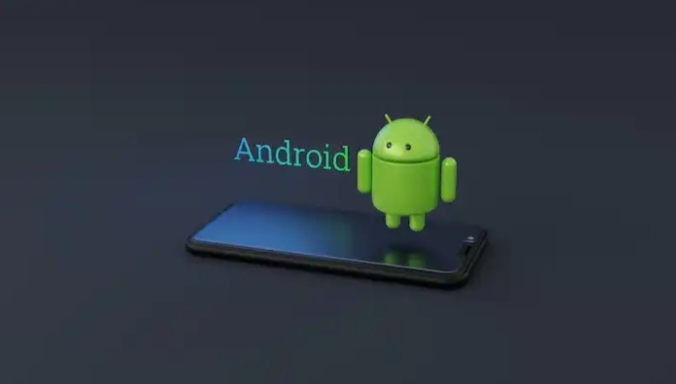
For over a decade, Android has been a cornerstone of mobile technology, a dynamic platform that has shaped the way we interact with the world. From its humble beginnings to its current position as the world’s most widely used mobile operating system, Android has revolutionized the smartphone experience. However, as we stand at the threshold of a new era, it’s time to reflect on what the end of the Android era means and what the future holds for mobile technology.
The Rise and Reign of Android
When Android first launched in 2008, it was seen as a bold contender in a market dominated by giants like Apple’s iOS and BlackBerry. What set Android apart was its open-source nature, allowing manufacturers and developers to customize the operating system to their liking. This flexibility spurred innovation, leading to a diverse ecosystem of devices and apps that catered to every imaginable user need.
Over the years, Android evolved through numerous versions, each bringing significant improvements in performance, security, and usability. The introduction of features like the Google Play Store, Google Assistant, and seamless integration with other Google services cemented Android’s position as a go-to platform for both users and developers.

The Shift In Landscape
Despite Android’s dominance, the tech landscape is ever-changing, driven by advancements in technology and shifting consumer preferences. Several factors signal that the traditional Android era as we know it is drawing to a close:
- Emergence of New Operating Systems: The tech world is abuzz with the development of new operating systems designed to address the shortcomings of existing ones. For instance, Huawei’s HarmonyOS and Google’s own Fuchsia are gaining traction as potential successors to Android. These systems promise enhanced performance, better security, and more seamless integration across a variety of devices.
- The Rise of AI and Machine Learning: Artificial Intelligence (AI) and Machine Learning (ML) are at the forefront of the next technological revolution. While Android has integrated AI through features like Google Assistant, the future points towards more sophisticated AI-driven operating systems that can offer personalized, intuitive user experiences.
- Focus on Privacy and Security: With growing concerns about data privacy and security, consumers are becoming more vigilant about the platforms they use. New operating systems that prioritize these aspects are likely to attract users who are wary of Android’s perceived vulnerabilities.
- Unified Ecosystems: Companies like Apple have thrived by creating tightly integrated ecosystems where hardware and software work seamlessly together. The future of mobile technology may lean towards more unified ecosystems that provide a cohesive user experience across smartphones, tablets, wearables, and other connected devices.

The Future Beyond Android
As we bid farewell to the traditional Android era, it’s crucial to explore what the future holds for mobile technology and how it will impact the youth worldwide:
- Enhanced Connectivity: The next generation of mobile operating systems will likely emphasize connectivity, enabling seamless interaction between devices. Imagine a world where your smartphone, smartwatch, and smart home devices communicate effortlessly, making your daily life more efficient and interconnected.
- Augmented Reality (AR) and Virtual Reality (VR): AR and VR technologies are set to revolutionize the way we interact with digital content. Future operating systems will likely integrate these technologies more deeply, providing immersive experiences for gaming, education, and social interactions.
- Sustainable Technology: As environmental concerns take center stage, the tech industry is moving towards more sustainable practices. Future mobile platforms will likely prioritize energy efficiency and the use of eco-friendly materials, resonating with the eco-conscious youth.
- Democratization of Technology: The end of the Android era doesn’t mean the end of accessible technology. New operating systems will continue the legacy of making advanced technology available to a broad audience, ensuring that innovation benefits everyone, regardless of their socioeconomic status.

Embracing Change
Change is the only constant in the world of technology. While it’s nostalgic to look back at the incredible journey of Android, it’s equally exciting to anticipate the innovations that lie ahead. The end of an era for Android signifies a fresh start, an opportunity for new technologies to emerge and redefine our mobile experiences.
For the youth worldwide, this transition offers a chance to be part of a transformative period in tech history. Embrace the change, stay curious, and get ready to explore the limitless possibilities that the future holds. The end of the Android era is not a conclusion but a new beginning, a gateway to the next chapter of technological evolution.



Модные советы по созданию превосходных луков на любой день.
Обзоры стилистов, события, все коллекции и мероприятия.
https://megakazan.ru/kzn/403-5-luchshih-sumok-balmain-na-2024-god-stil-i-elegantnost-ot-frantsuzskogo-doma-mody/
На этом сайте можно заказать сумки Balenciaga по привлекательной стоимости. Разнообразие моделей дает возможность подобрать подходящую модель для вас. Приобретайте фирменные товары Balenciaga легко и удобно.
https://bags.balenciager.ru/
Clinical importance of risk variants in the dihydropyrimidine dehydrogenase gene for the prediction of early onset fluoropyrimidine toxicity priligy online
2013 May 6; 8 5 e62709 how to buy priligy im 16 years old